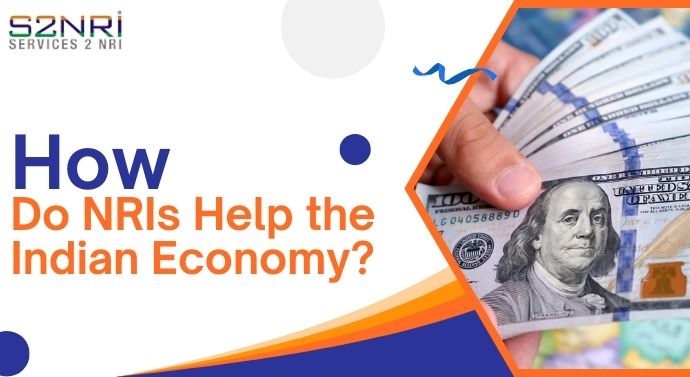Have you ever wondered how many Indians are migrated? Well, these are not hundreds, but over 29 million Indians are settled abroad. Every year, 2.5 million Indians take a flight to countries like the USA, UAE, Canada, and Malaysia. And as per current records, Europe is the latest hub for the Indian diaspora, where over 2.8 million Indians are employed or settled. The overseas countries might be developed and wealthy. Low population and lack of skilled workforce in countries like New Zealand, Germany, Italy, and the EU attract Indians to actively migrate to these countries.
Read MoreCategory: nri Investment
NRIs stands for non resident Indian, who want to invest their money in India visit S2NRI.com. This site specially built to cater the needs of Non Resident Indians. One Point Solution for all your needs in Mumbai INDIA

Why Is Investing In India A Great Option For NRIs?
India is NRIs Favourite Investment Destination: Why
Are you an NRI and want to park your hard-earned money somewhere that is safe and profitable?
Well, India can be a compelling alternative for it. The reasons are countless, ranging from emerging as a robust economy to a multitude of investment options. Being an apple of the world’s eye and the 5th largest economy in the world, this Asian country is no less than a heaven for investors, especially those who live abroad. It is not only growing consistently but also providing NRIs with a golden opportunity to maximise their additional earnings.
Read More
NRI Investment Services to Help NRIs Maximize Their Wealth
Over 2.5 million Indians pack their bags to shift in the US, UK, Australia, Canada, and other countries. Although it may not be a permanent shifting, the fact is that they don’t live here. A majority of NRIs from Indian Diaspora believes that their home country has an edge when it comes to investing their hard-earned money.
Read More
How Are NRIs Helping Indian Economy?
NRIs are people who used to live in India but now live in other countries. They help India by sending money back to their families, which in return strengthen the Indian economy. This money increases the foreign currency and makes sure the economy is stable. In the year 2022, NRIs sent a lot of money back to India, which was more than what the World Bank expected.
Read More
Tips for NRI Investors to Invest in Indian Startups
Indian is where global corporate communities want to invest. It’s the most preferred destination for them. The reason for this happening is growth prospect in this economy, which attracts foreign investors in this country.
Read More
Best Investment Tips for Non-Residents of India in 2022
A non-resident of India (NRI) can opt in for many investment plans in India, which can be a source of capital income. Besides, they can be their investment for a lifetime to have prosperous life after retirement from a job abroad.
Read More
Tips to Find Loyal NRI Consultant for Hidden Wealth
Hidden wealth is undiscovered riches that you have. Being an Ultra High Net Worth Individual (UHNI), it is important to have a hidden wealth consultant that can be an investment advisor.
The role of this financial advisor or consultant is vital as he can help you to come across related challenges effortlessly from any geography. They emerge handy, especially when the market is uncertain and changes frequently. As they are able to differentiate financial instruments, it becomes easier to embrace the idea that is profitable.
Read More










